
Find Help
More Items From Ergsy search
-

What should be done if severe side effects occur?
Relevance: 100%
-

What should I do if I experience severe side effects from Wegovy?
Relevance: 95%
-
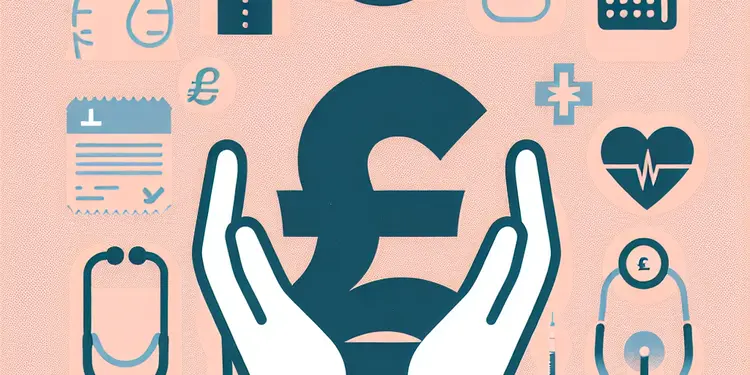
What should I do if I experience severe side effects from weight loss drugs?
Relevance: 88%
-

What are the side effects of Ozempic?
Relevance: 77%
-
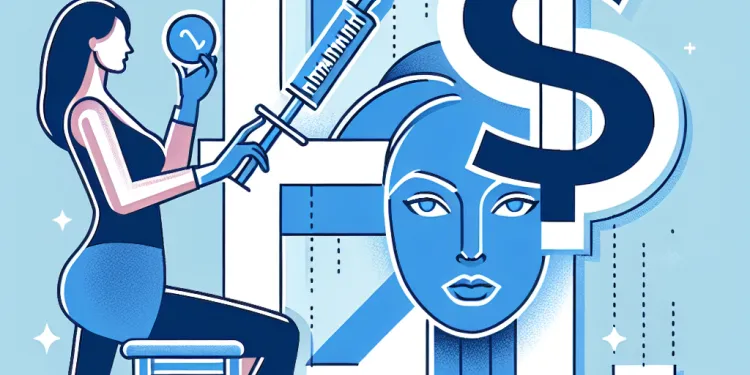
What are the side effects of Botox?
Relevance: 76%
-

What are the side effects of Botox?
Relevance: 75%
-
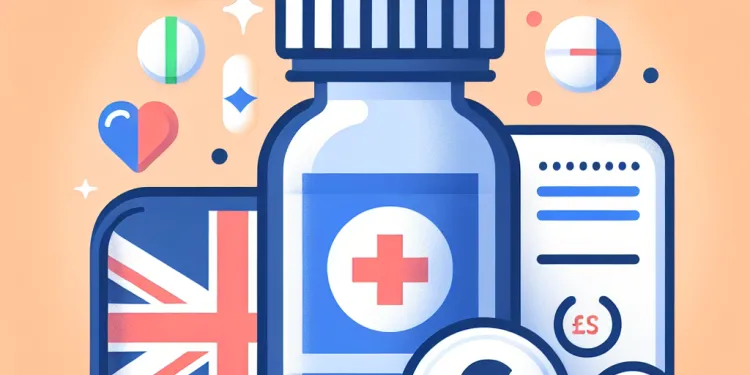
What are the side effects of Paracetamol?
Relevance: 74%
-

Are there any common side effects of Mounjaro?
Relevance: 74%
-

What are the common side effects of Ozempic?
Relevance: 74%
-

What are common side effects of Wegovy?
Relevance: 74%
-

What are common side effects of antibiotics?
Relevance: 74%
-

What are the common side effects of vaccines?
Relevance: 73%
-

What are common side effects of Baxdrostat?
Relevance: 73%
-

What are the common side effects of ketamine?
Relevance: 72%
-
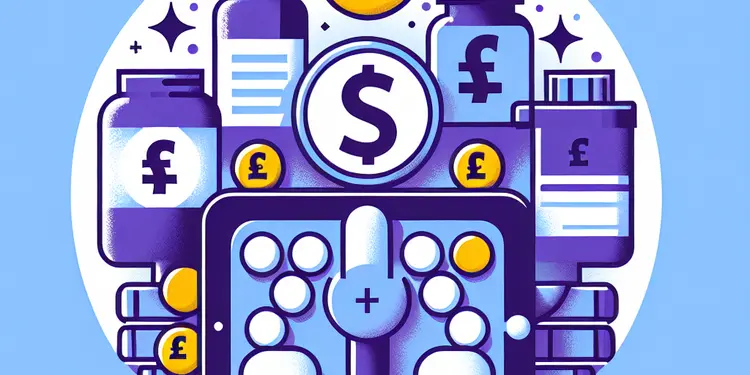
What are the common side effects of Abiraterone?
Relevance: 72%
-

Are there any side effects of the winter flu jab?
Relevance: 71%
-

What are the side effects of Ibuprofen?
Relevance: 71%
-

What are the side effects of Paillon treatment?
Relevance: 71%
-

Are there any side effects to the flu vaccine?
Relevance: 71%
-
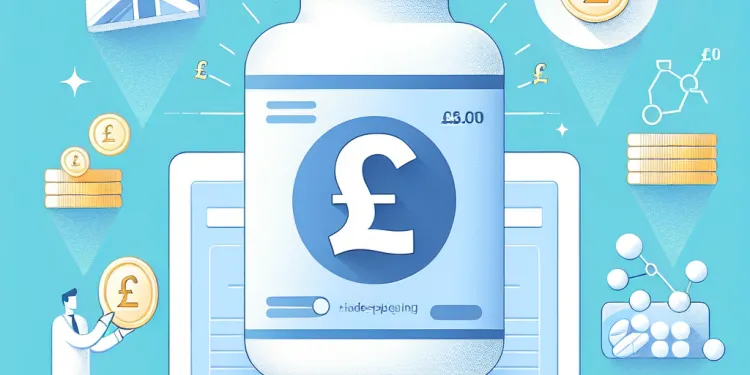
What are the side effects of Aspirin?
Relevance: 70%
-

What should I do if I experience side effects from a vaccine?
Relevance: 69%
-

What are common side effects of Ozempic?
Relevance: 69%
-
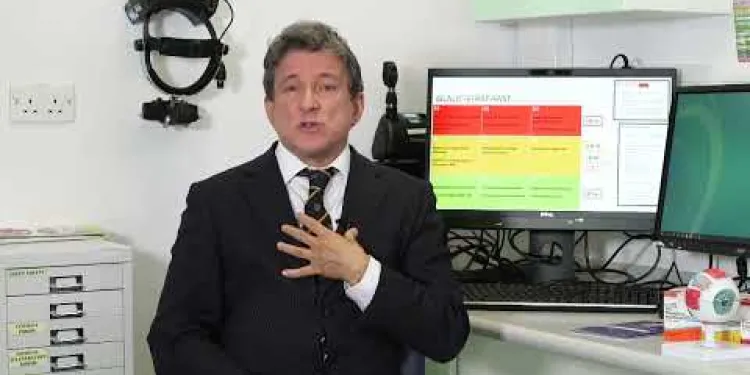
Glaucoma: general side effects of eye drops
Relevance: 68%
-
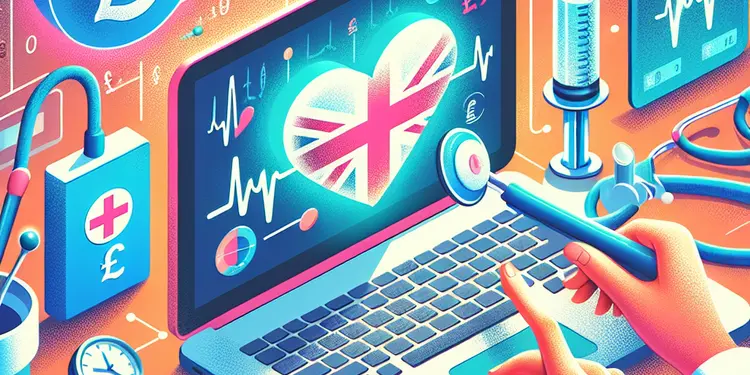
Will I experience side effects from the COVID jab?
Relevance: 68%
-

What are the side effects of caffeine pouches?
Relevance: 68%
-

Does the flu jab have any side effects?
Relevance: 67%
-

Is nausea a frequent side effect of Ozempic?
Relevance: 67%
-

What are common side effects of CBD?
Relevance: 67%
-
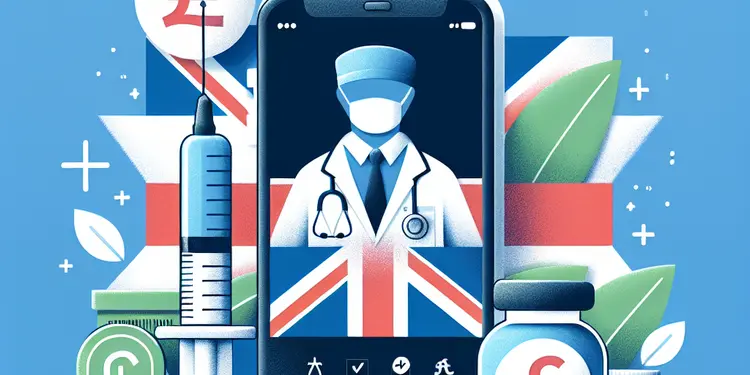
What should I do if I experience side effects after the COVID jab?
Relevance: 66%
-

Are there any long-term side effects of the COVID jab?
Relevance: 66%
-

Are there any common side effects of GLP-1 medications?
Relevance: 66%
-

Can Ozempic cause serious side effects?
Relevance: 66%
-
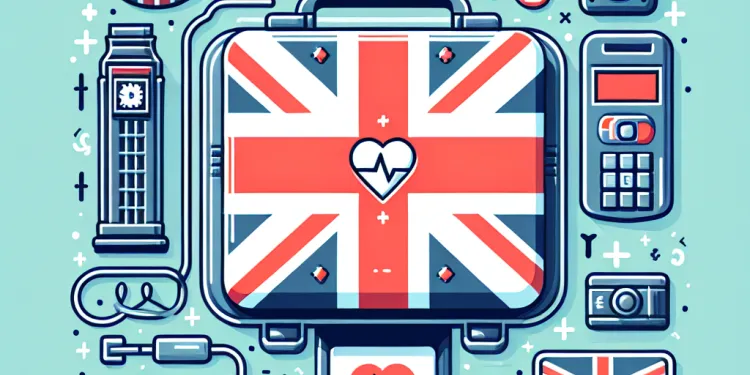
Do defibrillators have any side effects?
Relevance: 66%
-

What are the common side effects of spinal anaesthesia?
Relevance: 65%
-
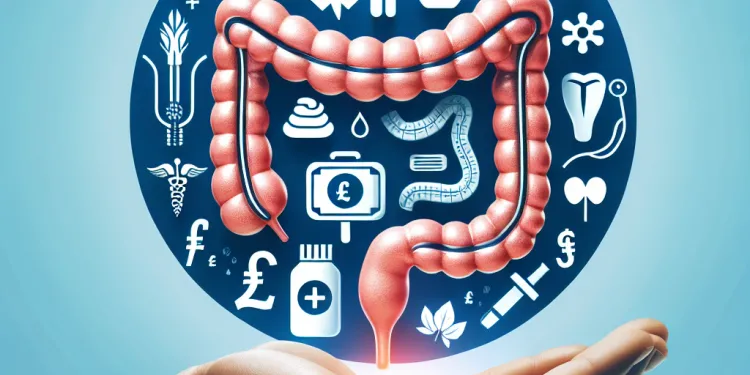
What are the side effects of bowel cancer treatment?
Relevance: 65%
-
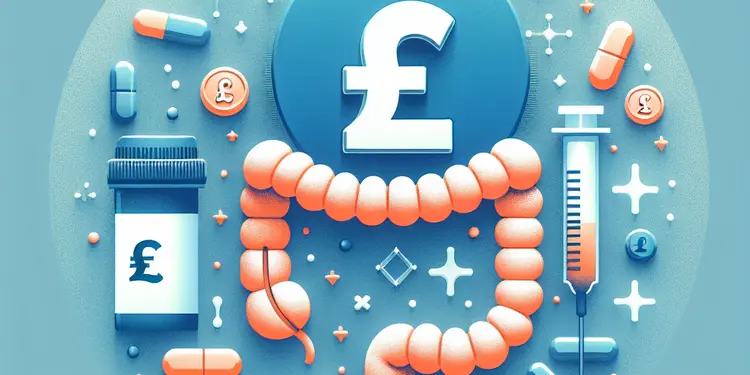
Are there any gastrointestinal side effects from weight loss medications?
Relevance: 65%
-

What are the known side effects of ketamine usage?
Relevance: 64%
-

What are common side effects of weight loss drugs?
Relevance: 64%
-

What are the side effects of prostate cancer surgery?
Relevance: 63%
-
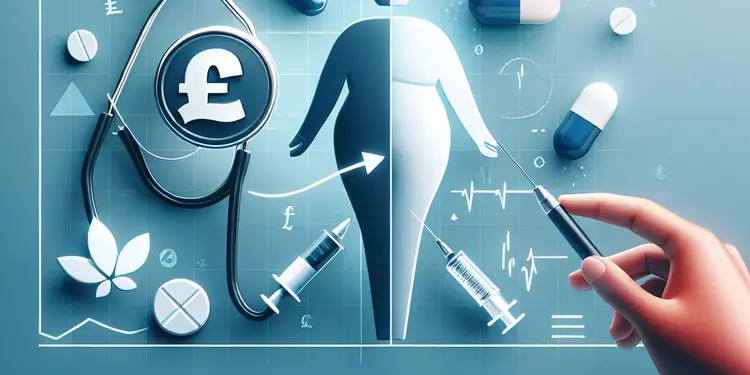
What should I do if I experience side effects from weight loss jabs?
Relevance: 63%
Identifying Severe Side Effects
Severe side effects can occur after taking medication, receiving a vaccine, or using a new health-related product. These side effects may manifest as unexpected reactions such as severe allergic reactions, intense pain, significant dizziness, or difficulty breathing. Recognising these signs promptly is crucial in preventing further health complications.
Immediate Actions to Take
If you or someone else experiences severe side effects, act quickly. Firstly, consider calling emergency services by dialing 999 if the side effects appear life-threatening, such as difficulty breathing, chest pain, or severe allergic reactions like swelling or hives. It is important to keep calm and provide clear information to emergency personnel about the person's condition and the medication or product that might have caused the reaction.
Consulting Healthcare Professionals
If the side effects are not immediately life-threatening but still cause concern, contact your GP or the NHS non-emergency number, 111, for guidance. You will receive advice on whether to seek immediate medical attention or monitor the symptoms at home. The healthcare professional will require information about the symptoms, the medication or product used, dosage, and the time elapsed since use.
Stopping the Medication
Unless advised by a healthcare professional, do not stop taking prescribed medication abruptly. Some medicines require a tapering process rather than sudden cessation to avoid withdrawal symptoms or exacerbation of the condition being treated. Discuss any concerns or side effects with your healthcare provider, who may adjust your dosage or prescribe an alternative medication.
Monitoring and Reporting
After seeking medical advice, continue monitoring the symptoms closely. Note any changes or developments, as this information can be valuable for your healthcare provider in determining the appropriate course of action. In the UK, the MHRA (Medicines and Healthcare products Regulatory Agency) encourages reporting adverse side effects through the Yellow Card Scheme. This scheme helps collect information about suspected side effects or medical device incidents, contributing to the safety monitoring of products.
Preventive Measures for Future Incidents
To prevent severe side effects, always adhere strictly to your prescription's guidelines. Inform your doctor of any allergies or past adverse reactions before starting new medication. Additionally, ensure your healthcare records are up-to-date, providing a complete overview of your medical history for every health professional involved in your care.
Conclusion
Dealing with severe side effects requires prompt action, effective communication with healthcare professionals, and adherence to recommended guidelines. Knowing when to seek immediate help, when to consult a doctor, and how to report incidents ensures not only personal safety but also contributes to wider public health surveillance. Regular consultations and open communication with your healthcare provider are key to managing medications safely and effectively.
Identifying Severe Side Effects
Sometimes, medicines, vaccines, or health products can cause serious problems. These problems might show up as bad reactions. This includes things like strong allergic reactions, bad pain, feeling very dizzy, or finding it hard to breathe. It's important to notice these signs quickly to stop more health problems.
Immediate Actions to Take
If you or someone else has bad side effects, act fast. If it looks serious, like trouble breathing or big allergic reactions (like swelling), call 999 right away. Stay calm. Tell the people who help about the person's signs and what they took or used.
Consulting Healthcare Professionals
If the problem is not super serious but still worrying, call your doctor or the NHS number 111. They will tell you if you need to see a doctor right away or if you can watch the signs at home. Make sure to tell them what signs you see, what medicine or product was used, how much was taken, and when it was used.
Stopping the Medication
Do not stop taking medicine suddenly unless your doctor says so. Some medicines need to be stopped slowly, not all at once. This avoids other problems. Talk to your doctor if you are worried. They might change your medicine or give you a new one.
Monitoring and Reporting
After talking to a doctor, keep an eye on the signs. Write down any changes. This helps your doctor know what to do next. In the UK, you can tell the MHRA about bad side effects using the Yellow Card Scheme. This helps keep medicines safe for everyone.
Preventive Measures for Future Incidents
To avoid bad side effects, always follow your medicine instructions. Tell your doctor about any allergies or bad reactions you've had before starting new medicine. Keep your health records up-to-date so doctors know all about your health history.
Conclusion
Handling bad side effects means acting fast, talking clearly with doctors, and following advice. Knowing when to ask for help and how to report problems keeps you safe. Regular talks and being open with your doctor help manage medicines safely.
Frequently Asked Questions
What constitutes a severe side effect?
Severe side effects are unexpected medical conditions that occur during treatment and are both serious and bothersome. These might include difficulty breathing, swelling, severe rash, and chest pain, among others.
What should I do if I experience a severe side effect?
Immediately contact your healthcare provider or seek emergency medical attention. It is important to act swiftly to ensure safety.
Should I stop taking the medication if I have severe side effects?
Do not stop taking any medication without first consulting your healthcare provider unless the side effect is life-threatening or requires emergency medical treatment.
Who should I contact if I experience a severe side effect?
Contact your doctor or healthcare provider immediately. If the side effect is life-threatening, call emergency services.
Can severe side effects be reported to any organization?
Yes, in the United States, you can report severe side effects to the FDA's MedWatch Adverse Event Reporting program.
Will my doctor change my medication if I have severe side effects?
Your doctor may decide to adjust your dosage or switch you to a different medication based on the severity and type of side effects you are experiencing.
Are there any steps I can take at home to manage severe side effects?
For severe side effects, medical evaluation is crucial. Do not attempt to manage severe reactions at home without professional guidance.
How can I prevent severe side effects from occurring?
Follow the prescribed dosage and instructions by your doctor, and inform them about any other medications or supplements you are taking.
Should I keep a record of my side effects?
Yes, maintain a detailed record of all side effects, including their severity, duration, and any other relevant symptoms, to discuss with your healthcare provider.
Can allergies contribute to severe side effects?
Yes, allergies to medications or their components can lead to severe side effects. Inform your doctor of any known allergies before starting treatment.
How soon should I seek help after experiencing a severe side effect?
Seek help immediately after experiencing a severe side effect to prevent further complications.
Should I inform the pharmacist if I experience severe side effects?
Yes, informing the pharmacist can provide immediate advice on next steps and they can alert your healthcare provider.
What information should I provide to the emergency team about a severe side effect?
Provide information about the medication you are taking, the dosage, the time the side effect began, and any other symptoms or reactions you're experiencing.
Can lifestyle changes help manage severe side effects?
While lifestyle changes can support overall health, they cannot manage severe side effects directly. Medical intervention is necessary for severe reactions.
Are severe side effects common with all medications?
Severe side effects are not common with all medications, but every medication has a potential for serious reactions in certain individuals.
Will I have to undergo tests if I experience severe side effects?
Your doctor may order tests to determine the cause and extent of the side effects, ensuring appropriate treatment is administered.
Is it possible for severe side effects to resolve on their own?
While some mild side effects may resolve, severe side effects require medical evaluation and intervention. Do not wait to see if they will go away on their own.
How are severe side effects treated?
Treatment varies based on the specific side effect and its cause, ranging from medication adjustments to emergency interventions.
Can mental health be affected by severe side effects?
Yes, certain medications can cause severe side effects that impact mental health, such as mood changes or depression, and should be addressed by a healthcare provider.
Should I discuss the possibility of severe side effects before starting a new medication?
Yes, always discuss potential side effects with your healthcare provider before starting any new medication to understand the risks and prepare accordingly.
What is a bad side effect?
Serious side effects are bad things that can happen to your body when you take medicine. They are surprising and can make you feel very sick. Some serious side effects can be having a hard time breathing, swelling, a big rash on your skin, and pain in your chest.
If you have trouble reading, it's okay to ask for help. You can also use tools like audiobooks or text-to-speech apps to listen instead of reading.
What to do if I have a bad side effect?
If you feel very sick or something doesn't feel right after taking medicine, tell a grown-up you trust. This could be a parent, teacher, or doctor.
They can help you and make sure you get the right care. You can also call a doctor or nurse to ask what to do.
If it feels really bad, like you can't breathe or you feel very dizzy, it’s important to get help fast. You might need to go to the hospital or call for emergency help.
Using tools like a phone to call someone, or having a notebook to write down how you feel, can help you explain what is happening.
Call your doctor right away or get help from emergency services. It is important to act fast to stay safe.
What if the medicine makes me feel very bad?
Do not stop taking your medicine without talking to your doctor first, unless it's an emergency or the side effect is very serious.
Who do I talk to if I have a bad reaction?
If you feel really sick after taking medicine, tell an adult. You can also call your doctor or nurse. They can help you feel better.
You can ask someone you trust to help you make the call. Having a friend or family member with you can make it easier.
Tell your doctor or healthcare helper right away. If the side effect is very bad, call for an ambulance or emergency help.
Can bad side effects be told to someone?
Yes, in the United States, you can tell the FDA about bad side effects through MedWatch. MedWatch helps you tell about problems with medicine or treatments.
Will my doctor change my medicine if I feel very bad from it?
If your medicine makes you feel very bad, tell your doctor.
Your doctor might give you a different medicine to make you feel better. You can ask questions if you do not understand.
It can help to write down how you feel. You can bring these notes when you see your doctor.
You can also ask someone to go with you to the doctor. They can help you remember what to say and listen to what the doctor says.
Your doctor might change how much medicine you take or give you a different one if the side effects are bad. This depends on how serious and what kind of side effects they are.
Can I do anything at home to help if I feel very sick from medicine?
If you feel very sick, see a doctor. Do not try to fix big problems by yourself at home. Always get help from a doctor.
How can I stop bad side effects?
To help stop bad side effects from medicine:
- Talk to your doctor or nurse. They can help you.
- Ask about any side effects that might happen.
- Tell someone if you feel sick after taking medicine.
- Read the leaflet that comes with the medicine. It tells you about side effects.
Here are some things that can help:
- Use a calendar or set an alarm to take your medicine on time.
- Have a list of all your medicines to show your doctor.
- Ask for help from a family member or friend.
These steps can help you feel better and stay safe.
Take the medicine exactly how your doctor tells you. Tell your doctor about any other pills or vitamins you are using.
Should I write down how my medicine makes me feel?
It's a good idea to write down how your medicine makes you feel. This is called keeping a record. It can help you and your doctor. You can write about any side effects, which are different feelings or problems you might have after taking medicine.
Here are some tips to help you keep track:
- Use a notebook or a special app to write down your side effects.
- Write the date and time when you feel the side effect.
- Describe how you feel. Is it a tummy ache, a headache, or something else?
- Tell someone you trust, like a family member or doctor, about your side effects.
Keeping a record can help you find patterns and get help if you need it.
Yes, keep a list of any side effects you have. Write down how bad they are, how long they last, and any other symptoms you notice. Share this list with your doctor.
Can allergies cause bad problems?
Some people have allergies. Allergies mean your body doesn't like something. Sometimes, allergies can make people feel very bad.
It is good to know if you have allergies. You can talk to a doctor for help. They can tell you what to do.
You can use pictures or videos to learn more about allergies. This can make it easier to understand.
Yes, sometimes people can be allergic to medicines. This can make you very sick. Always tell your doctor if you know you are allergic to any medicine before you start taking it.
When should I get help if a medicine makes me feel very sick?
If you take a medicine and it makes you feel very sick, get help quickly.
Tell a grown-up or someone you trust.
You can also call a doctor, nurse, or 911 for help.
If reading is hard, you can ask someone to read this with you.
Using pictures to show how you feel can also help people understand.
Get help right away if you have a bad reaction to stop more problems from happening.
Do I need to tell the pharmacist if I have bad side effects?
If you take medicine and it makes you feel very bad, tell the pharmacist. They can help you feel better. It's important to speak up if something feels wrong.
If you find reading hard, you can:
- Ask someone for help.
- Use a device that reads text out loud.
- Break the text into small parts and read it slowly.
Yes, tell the pharmacist right away. They can help you know what to do next and tell your doctor if needed.
What should I tell the emergency team if I have a bad reaction?
When you talk to the emergency team, do these things: - **Say what happened:** Tell them what you took or did before you felt bad. - **Describe your feelings:** Say how your body feels and where it hurts. - **Mention allergies:** Tell them if you are allergic to anything. - **Say what medicines you take:** List the pills or liquids you use every day. To help remember everything, you could: - **Make a list:** Write down your medicine info and keep it with you. - **Use a phone app:** Some apps can store your health info. This helps the team help you faster!Tell someone the name of the medicine you are taking. Say how much you take and when you started feeling bad. Also, say if you feel anything else strange or different.
Can changes in daily habits help with bad side effects?
Changing how we live can help us stay healthy. But it might not help with very bad side effects. For serious problems, a doctor needs to help.
Do all medicines usually have strong side effects?
Some medicines might give you strong side effects, but not all of them do. A side effect is something your body feels when you take medicine, like feeling dizzy or sick.
If you're worried, ask your doctor or nurse. They can tell you what to expect with your medicine.
You can use big print or read the information out loud to make it easier.
Not everyone gets bad side effects from medicines. But some medicines might cause serious problems for some people.
Will I need tests if medicine makes me feel very bad?
If you feel very bad after taking medicine, you might need tests to check why.
Things to help:
- Ask a doctor or nurse for help.
- Tell someone how you feel.
- Use pictures to explain your feelings.
- Write down your side effects.
Your doctor might do some tests. These tests help find out why the side effects are happening and how bad they are. This way, the doctor can give you the right treatment.
Can strong side effects go away by themselves?
Sometimes, strong side effects might stop without help.
If you feel unwell, talk to a doctor or nurse.
Using simple language helps. Reading tools like audiobooks or apps can also help understand.
Some side effects are small and might go away by themselves. But if you have bad side effects, you need to see a doctor right away. Don't wait to see if they stop on their own.
How do we help when side effects are bad?
There are different ways to help with side effects. It depends on what the side effect is and why it happens. Sometimes, the doctor might change your medicine. If it is serious, they might need to help right away.
Can mental health be affected by strong side effects?
Sometimes, medicines or treatments can make people feel not well. These feelings are called side effects. If side effects are strong, they might make your mind feel sad, worried, or tired.
Here are some ways to feel better:
- Talk to a doctor or nurse if you feel strange.
- Tell a friend or family member how you feel.
- Write down how you feel each day. This can help you see any changes.
Remember, it is okay to ask for help!
Yes, some medicines can make you feel different and can change your mood or make you feel sad. If this happens, talk to a doctor or nurse for help.
Should I talk about bad side effects before taking new medicine?
Here is some help for reading this question:
- Talk to your doctor: Before you start new medicine, ask your doctor about any bad side effects.
- Use pictures: Look for pictures that show what the medicine might do to help understand.
- Ask for help: If you find it hard to read, ask a friend or family member to explain.
Talk to your doctor before taking new medicine. It's important to know what could happen and be ready.
Useful Links
This website offers general information and is not a substitute for professional advice.
Always seek guidance from qualified professionals.
If you have any medical concerns or need urgent help, contact a healthcare professional or emergency services immediately.
Some of this content was generated with AI assistance. We’ve done our best to keep it accurate, helpful, and human-friendly.
- Ergsy carfully checks the information in the videos we provide here.
- Videos shown by Youtube after a video has completed, have NOT been reviewed by ERGSY.
- To view, click the arrow in centre of video.
- Most of the videos you find here will have subtitles and/or closed captions available.
- You may need to turn these on, and choose your preferred language.
- Go to the video you'd like to watch.
- If closed captions (CC) are available, settings will be visible on the bottom right of the video player.
- To turn on Captions, click settings .
- To turn off Captions, click settings again.
More Items From Ergsy search
-

What should be done if severe side effects occur?
Relevance: 100%
-

What should I do if I experience severe side effects from Wegovy?
Relevance: 95%
-

What should I do if I experience severe side effects from weight loss drugs?
Relevance: 88%
-

What are the side effects of Ozempic?
Relevance: 77%
-

What are the side effects of Botox?
Relevance: 76%
-

What are the side effects of Botox?
Relevance: 75%
-

What are the side effects of Paracetamol?
Relevance: 74%
-

Are there any common side effects of Mounjaro?
Relevance: 74%
-

What are the common side effects of Ozempic?
Relevance: 74%
-

What are common side effects of Wegovy?
Relevance: 74%
-

What are common side effects of antibiotics?
Relevance: 74%
-

What are the common side effects of vaccines?
Relevance: 73%
-

What are common side effects of Baxdrostat?
Relevance: 73%
-

What are the common side effects of ketamine?
Relevance: 72%
-

What are the common side effects of Abiraterone?
Relevance: 72%
-

Are there any side effects of the winter flu jab?
Relevance: 71%
-

What are the side effects of Ibuprofen?
Relevance: 71%
-

What are the side effects of Paillon treatment?
Relevance: 71%
-

Are there any side effects to the flu vaccine?
Relevance: 71%
-

What are the side effects of Aspirin?
Relevance: 70%
-

What should I do if I experience side effects from a vaccine?
Relevance: 69%
-

What are common side effects of Ozempic?
Relevance: 69%
-

Glaucoma: general side effects of eye drops
Relevance: 68%
-

Will I experience side effects from the COVID jab?
Relevance: 68%
-

What are the side effects of caffeine pouches?
Relevance: 68%
-

Does the flu jab have any side effects?
Relevance: 67%
-

Is nausea a frequent side effect of Ozempic?
Relevance: 67%
-

What are common side effects of CBD?
Relevance: 67%
-

What should I do if I experience side effects after the COVID jab?
Relevance: 66%
-

Are there any long-term side effects of the COVID jab?
Relevance: 66%
-

Are there any common side effects of GLP-1 medications?
Relevance: 66%
-

Can Ozempic cause serious side effects?
Relevance: 66%
-

Do defibrillators have any side effects?
Relevance: 66%
-

What are the common side effects of spinal anaesthesia?
Relevance: 65%
-

What are the side effects of bowel cancer treatment?
Relevance: 65%
-

Are there any gastrointestinal side effects from weight loss medications?
Relevance: 65%
-

What are the known side effects of ketamine usage?
Relevance: 64%
-

What are common side effects of weight loss drugs?
Relevance: 64%
-

What are the side effects of prostate cancer surgery?
Relevance: 63%
-

What should I do if I experience side effects from weight loss jabs?
Relevance: 63%


